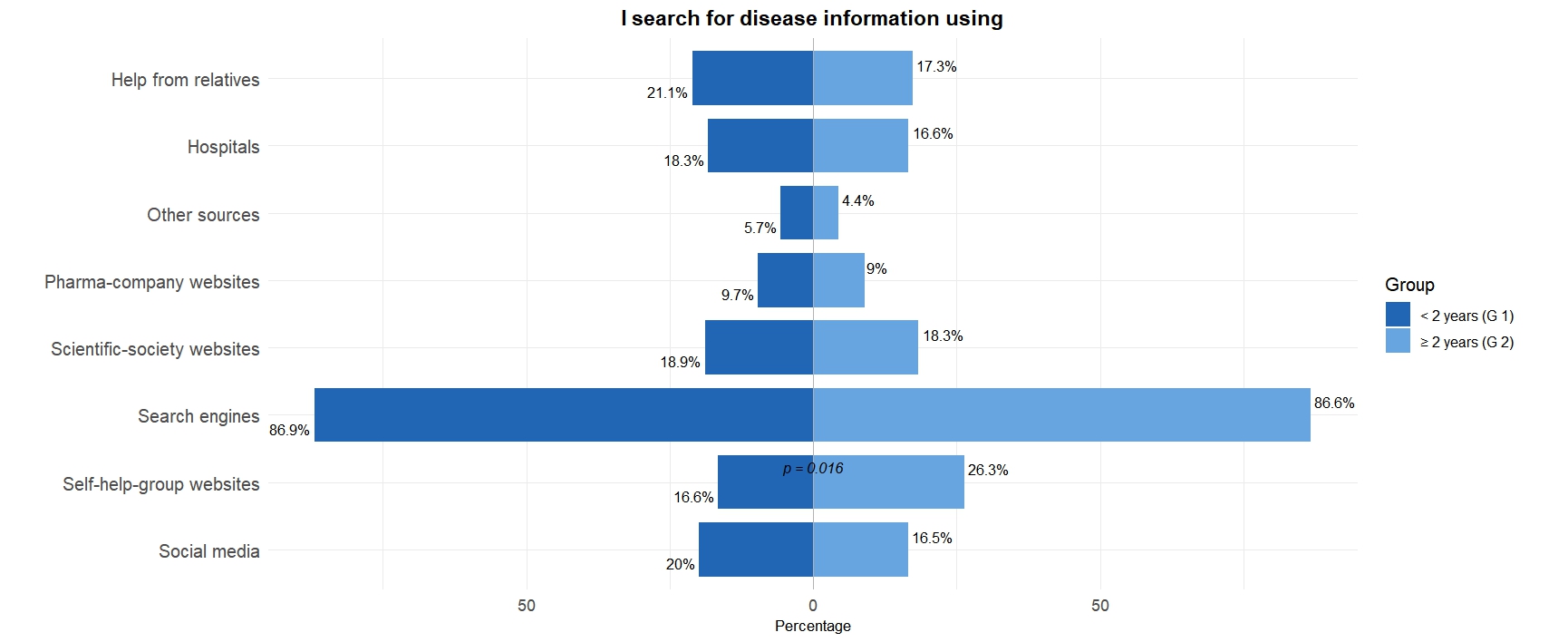Session Information
Session Type: Poster Session A
Session Time: 10:30AM-12:30PM
Background/Purpose: Digital health literacy has recently become a focus of patient-centred recommendations, not only as a key social determinant of health, but also as a tool for evaluating the successful implementation and accessibility of eHealth interventions (1). In line with the overarching goal of empowering patients in their disease management, telemedicine and digital health tools are gaining ground (2). However, there is a gap in understanding the accessibility, usability and comprehensibility of available digital resources and the actual level of digital health literacy among patients with RMD. This study aims to assess the ability of patients with RMD to search for and select relevant disease-related information for self-management.
Methods: In this cross-sectional study, patients diagnosed with rheumatoid arthritis (RA), psoriatic arthritis (PsA) or axial spondyloarthritis (SpA) were consecutively recruited from a tertiary centre. Patients completed a structured questionnaire covering internet access, search strategies, understanding and use of online disease-related information. Patients were categorised according to disease duration: early disease (< 2 years; Group 1, G 1) and long-standing disease ( > 2 years from diagnosis; Group 2, G 2). Descriptive statistics and chi-squared tests were used for group comparisons. The study was conducted in collaboration with the patient’s research partners from the German Rheumatology Patient Association (Deutsche Rheumaliga).
Results: A total of 705 patients were recruited (53.8% RA, 25.5% axSpA and 20.7% PsA) with a mean disease duration of 9.7 ± 10.5 years and a mean age of 53.7 years. The majority were female (62.7%).Out of 705 patients, 552 (78.3%) indicated that they had searched for disease-related information on the internet. Most patients reported mainly using their smartphones (80.3%), with higher use of smartphones among patients with early vs. long-standing disease duration (86.5% vs 77.4%, respectively, p < 0.05). The predominance of information sources accessed is shown in Figure 1. Patients with early disease (G1) consulted the internet more frequently, with 19.3% searching several times a week, compared to 8.2% of patients with a long-standing disease (G 2). The majority found online content understandable (79.8%) and would seek clarification from their rheumatologist if in doubt (83.7%). Two-thirds (68.2%) reported using the information in their daily lives, with no significant difference between groups. Notably, patients in G 1 were more likely to investigate community, social and regulatory issues (p< 0.05), with 36.4% (G1) vs 24.8% (G2) looking for self-help groups, 40.5% (G1) vs 29.5% (G2) for patient forums and 41.9 % (G1) vs 30.2 % (G2) for health policy decisions, Figure 2.
Conclusion: Searching for health information online is common among patients with RMD and is used as a supplement to regular outpatient consultations. The vast majority of recruited patients, especially those in the early stages of their disease, actively seek online information and feel competent to use it. High smartphone usage highlights the need for mobile-optimised, evidence-based resources
To cite this abstract in AMA style:
Andreica I, Chikh Mohamad S, Wiek D, Barten B, Roman I, Kremser A, Kiefer D, Sewerin P, Kiltz U, Baraliakos X. Exploring internet use and health information behaviour in patients with inflammatory rheumatic musculoskeletal diseases (RMD) [abstract]. Arthritis Rheumatol. 2025; 77 (suppl 9). https://acrabstracts.org/abstract/exploring-internet-use-and-health-information-behaviour-in-patients-with-inflammatory-rheumatic-musculoskeletal-diseases-rmd/. Accessed .« Back to ACR Convergence 2025
ACR Meeting Abstracts - https://acrabstracts.org/abstract/exploring-internet-use-and-health-information-behaviour-in-patients-with-inflammatory-rheumatic-musculoskeletal-diseases-rmd/


.jpg)